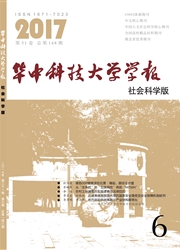

 中文摘要:
中文摘要:
文章采用CSS2011调查数据,借鉴目标设定理论,运用渐进调适模型,考察农民工经济地位预期、社会保障参与度对其城镇购房意愿的主效应和调节效应。从经济地位泛预期层面来说,农民工经济地位预期提升,对其城镇购房有显著的正向推动作用,而经济地位预期下降则对其城镇购房有负面效应。从社会保障参与度来说,农民工社会保障参与度越高对其城镇购房意愿有显著提高效应,同时农民工社会保障参与度在经济地位预期与城镇购房关系中存在调节效应。综合来说,经济地位预期和社会保障参与度对农民工城镇购房意愿的影响存在区域差异,对东部和中部地区的农民工购房行为有显著影响,而对西部地区的农民工购房行为没有显著影响。
 英文摘要:
英文摘要:
This paper, using CSS2011 survey data, from the goal setting theory, with the model of a gradual adjustment, examines the main effect and regulation effect to house purchase of rural migrant workers of their economic status and social security participation. Research shows that: first, overall, the raise of the migrant workers' economic status expection, has a positive role in urban housing, and the fall of it e has a negative effect; Second, social security participation has significantly raised the migrant workers' will to pur- chase house. At the same time, the social security of migrant workers participation has regulation effect in the relationship between economic status and urban housing; Third, there is regional difference of the effect on mi- grant workers ' will to purchase house. It has a significant influence to farmers purchase behavior in the east and central regions, but no significant effect in Western regions.
 同期刊论文项目
同期刊论文项目
 同项目期刊论文
同项目期刊论文
 期刊信息
期刊信息
